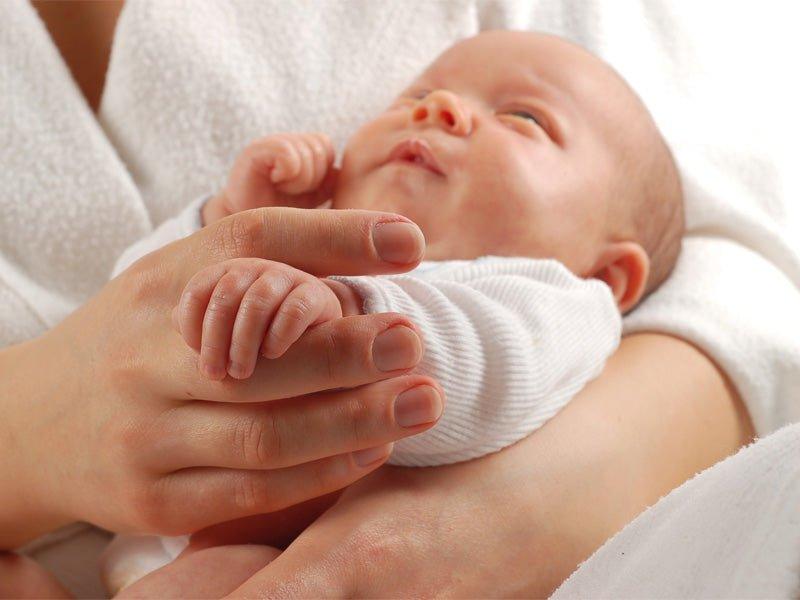Becoming a parent, especially for the first time, is a life-changing event. Psychologists who have done research into the levels of stress attributed to various critical situations in our lives, suggest that the adjustment to the birth of a baby is not far removed from the stress attributed to death and divorce! This sounds really negative and incredibly daunting. After all, the latter two events involve traumatic loss, while birth surely involves the opposite?
Upon reflection however, it becomes clear that the birth of a baby – especially the first – involves losses and inevitable changes.
For most couples the confirmation of that first pregnancy is greeted with joy and celebration. Even in cases where the pregnancy may not have been planned , the news is usually accepted with positivity and acceptance. The focus is placed on the excitement of the new addition to the family and extended family become part of the anticipation and planning. Parenting books are read, ante natal classes attended, baby departments are explored and lists made of the requirements for this new little person. It is generally anticipated with joy – at times tinged with some anxiety regarding the health of the baby and the birth process. When the first scan shows the reality of the miracle which is developing in the mother’s body, the parents begin to actively bond with their baby. The emphasis is largely positive and a great deal of time and energy is put into the planning of the baby’s arrival and the hopes that the parents have for this new addition to their family.
As with everything in life, there cannot be all positives. Like laws of science, you cannot have a positive without a negative. The problem for most new parents is that no-one prepares them for the inevitable negatives. When I have asked new parents, in the throes of the chaos of the first few weeks and months of their baby’s arrival, if they would have believed it if someone had mentioned that there would be negatives, they almost always say “no”! The rest of the conversation goes something like this.....” I really did think that, even though many of my friends told me that there would be terrible days, sleepless nights, hours of colic-related distress, total disorganisation etc, I just thought that it would be different for me. Further, because I have always been so organised and am so well prepared, I would sail through it. Sure – there would be challenges – but I would keep on top of it all.”
The reality is that becoming a parent involves many losses – and it is o important to recognise this – and to develop realistic expectations of the road ahead.
What are these losses?
1) For the mother:
The loss of her pre-baby body. For many women, this comes as a shock. Many believe that, once the baby is delivered, her body will return to its pre-baby shape. For some this may be so, but for most, it takes many months to begin to fit into those pre-baby jeans and skirts. This leads to loss of self esteem, as the new mother feels increasingly unattractive and decidedly unromantic. Many new Moms also feel isolated and cut off from previous friends – especially her childless friends. Her world becomes centred around feeding, nappy changing, catching up on sleep and keeping up with chores . She loses her interest in sex- bed becomes a place for sleep only! She is just too exhausted to even think of anything else in bed.
2) For the father:
He loses the partner he had pre-baby. This leads to confusion and misunderstandings. Although for many fathers, life continues much as it was – especially if he is at work all day – with adults and the usual routines, he will also be exhausted from the erratic nights and the extra demands placed on him. Often the loss of the other income ( even if only for a while) places stress on him. Many fathers have shared that they become anxious about the reality that the mother and child are so totally dependent on him at this time. Fathers have shared with me that they cannot understand the change in their partners – the transition from “lover” to “mother” seems an enormous one. While they understand the reasons, they feel cut off and confused. They also feel enormous ambivalence regarding how to get the balance between being the “hunters who bring home the bacon” and the nurturing, hands-on Dads that they hope to be.
3) For the couple:
The loss of spontaneity. Pre baby it was possible to do things on the spur of the moment. To have leisurely Sunday mornings reading the papers and sipping cappuchinos. they could go out to restaurants on the spur of the moment. They now have to plan things carefully. Pack bags, bottles , prams and other baby essentials.
And, even if they do get out for a meal eventually, either the baby becomes restless or they are so exhausted by the time they order the meal, that they would rather have stayed at home and gone to sleep when the baby slept!! Another issue which can cause enormous issues, is that most new parents do not have any prior communication about how they hope to parent their baby. Huge problems can emerge – as suddenly they realise that each is hoping to parent in the way they were parented. Or to parent in different ways, because of negative childhood experiences. But they did not think to address this during the months of planning for the baby’s arrival.
The list of possible losses just goes on and on. But – as I said earlier, there are so many positives. And the positives will shine through – if only parents would recognise that any adjustment is challenging – and takes a great deal of effort and mature application of skills and effective strategies.
To highlight the most important in my opinion:
1) Try to see the world through each other’s eyes. Try to understand how this new stage in your lives affects each of you. Show empathy towards each other. This is such a crucial factor. Many new fathers fail to show empathy towards their partners. They become judgmental when she is tired and disorganised. Impatient when she seems irrational and self centred. Her hormones have undergone huge changes- and this can lead to emotions that seem uncontrollable. Calm understanding, helping her voice the feelings which she is not expressing in an adult way – will go a long way towards helping the crisis to pass. In the same way, if the new mother tries to understand just how confusing it is for the new father, and places herself more often in his shoes, things will calm down and the relationship will be enriched. Through empathy and effective communication will come a closeness in your relationship – and this will lead to reconnecting on an intimate level.
2) Have realistic expectations – of each other, of the baby – and of this time in the development of your family. Do not try for perfection. This will lead to feelings of frustration and failure. Accept the inevitability of chaos for a while. Set very small goals initially eg to just get dressed by lunchtime! Or to make supper by 8pm!
3) Realise that, for the first few months, the baby will dictate the pace. Meeting his needs at this stage, will actually lead to the routine becoming predictable sooner. You will get your life back sooner if you accept that it will have to come second for a while.
4) Do not stop communicating with each other. As tired as you may be, try to share feelings and opinions. Listen to each other. Express negative feelings as maturely as possible. Make time to talk – even if you are exhausted and it is over a cup of hot chocolate or rooibos tea ( or a glass of wine) while the baby is sleeping – eventually. Set this as a priority. The dishes can wait and the dust on the furniture will not be held as a measure of your success in life. But your communication with the other parent will be of immense importance. I have dealt with far too many sad divorces / separations – where the source of the disconnection began with the birth of the first baby.
Becoming a parent is momentous. It is life changing. But it is also the best opportunity for personal growth that I can think of. Enjoy the many, many marvellous “highs” – and balance these with the inevitable “lows”. Communicate, share, ask for help, learn and stay positive. Remember that a sense of humour is essential. Being a parent if for life – so relax and enjoy it.
By Anne Cawood
Anne Cawood is the author of Children need Boundaries, Toddlers need Boundaries, Children need Grandparents and Adjusting the Boundaries. For more information from Anne Cawood go to www.boundariesinc.co.za or email her at anne@boundariesinc.co.za







